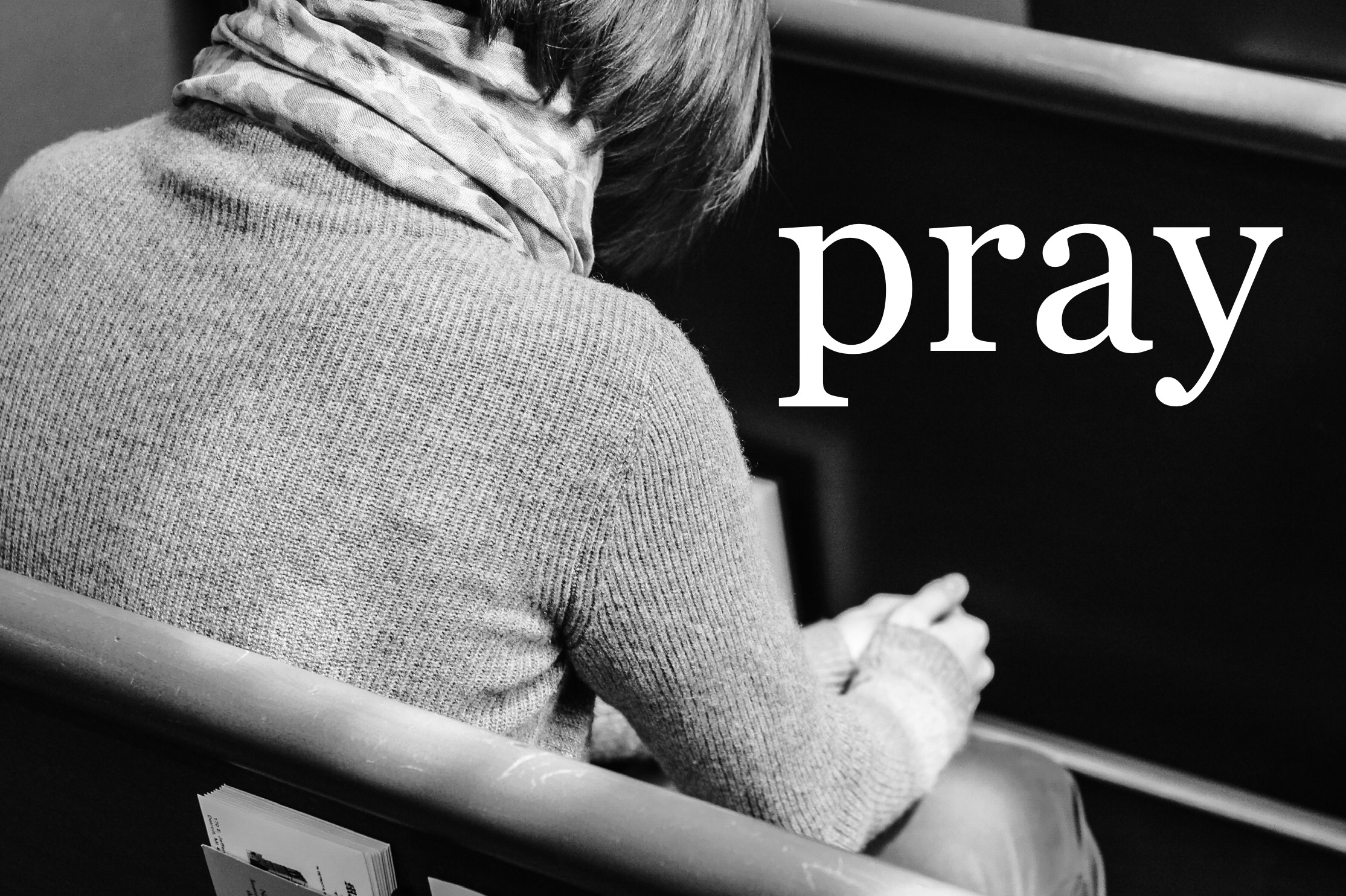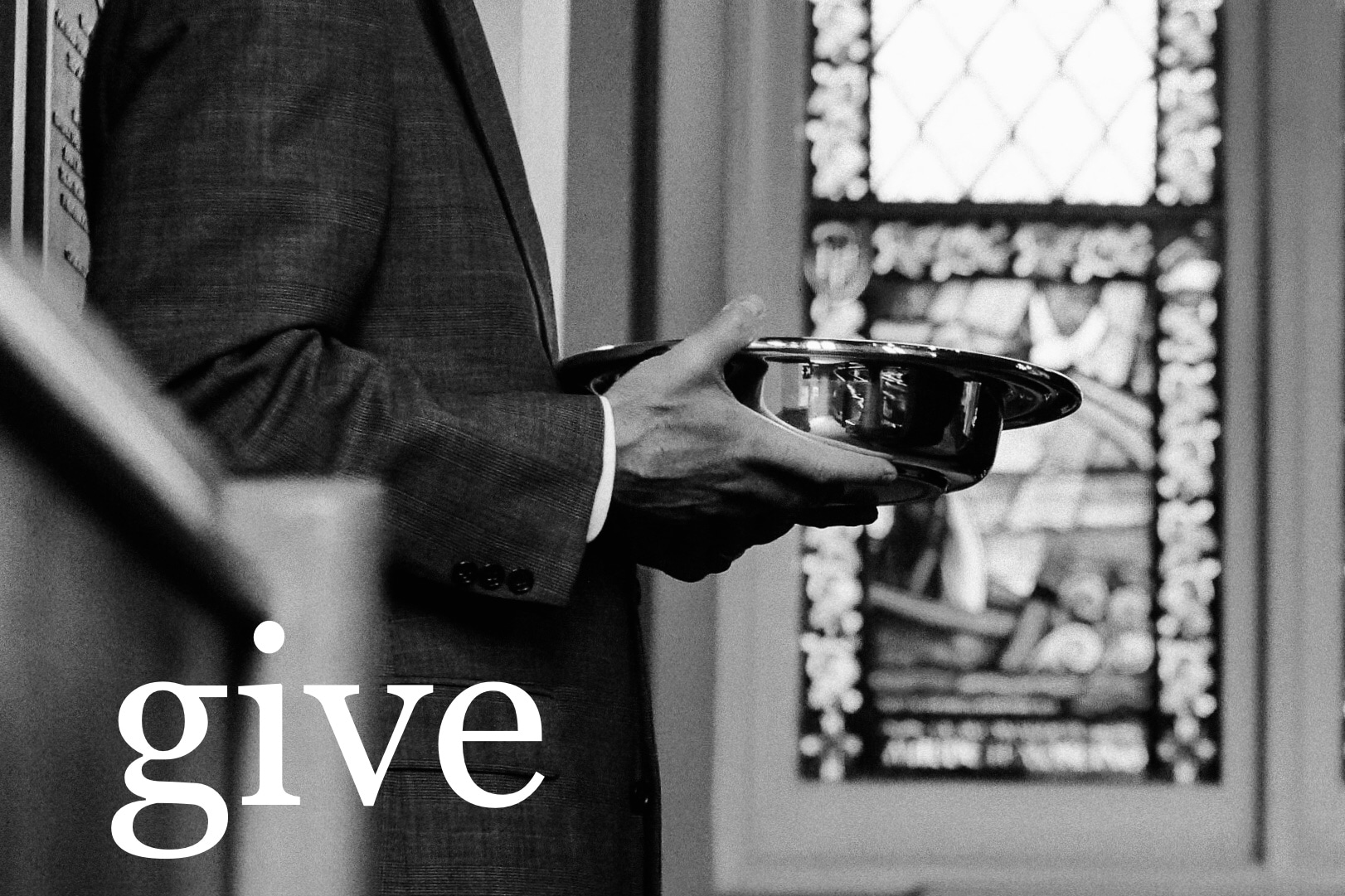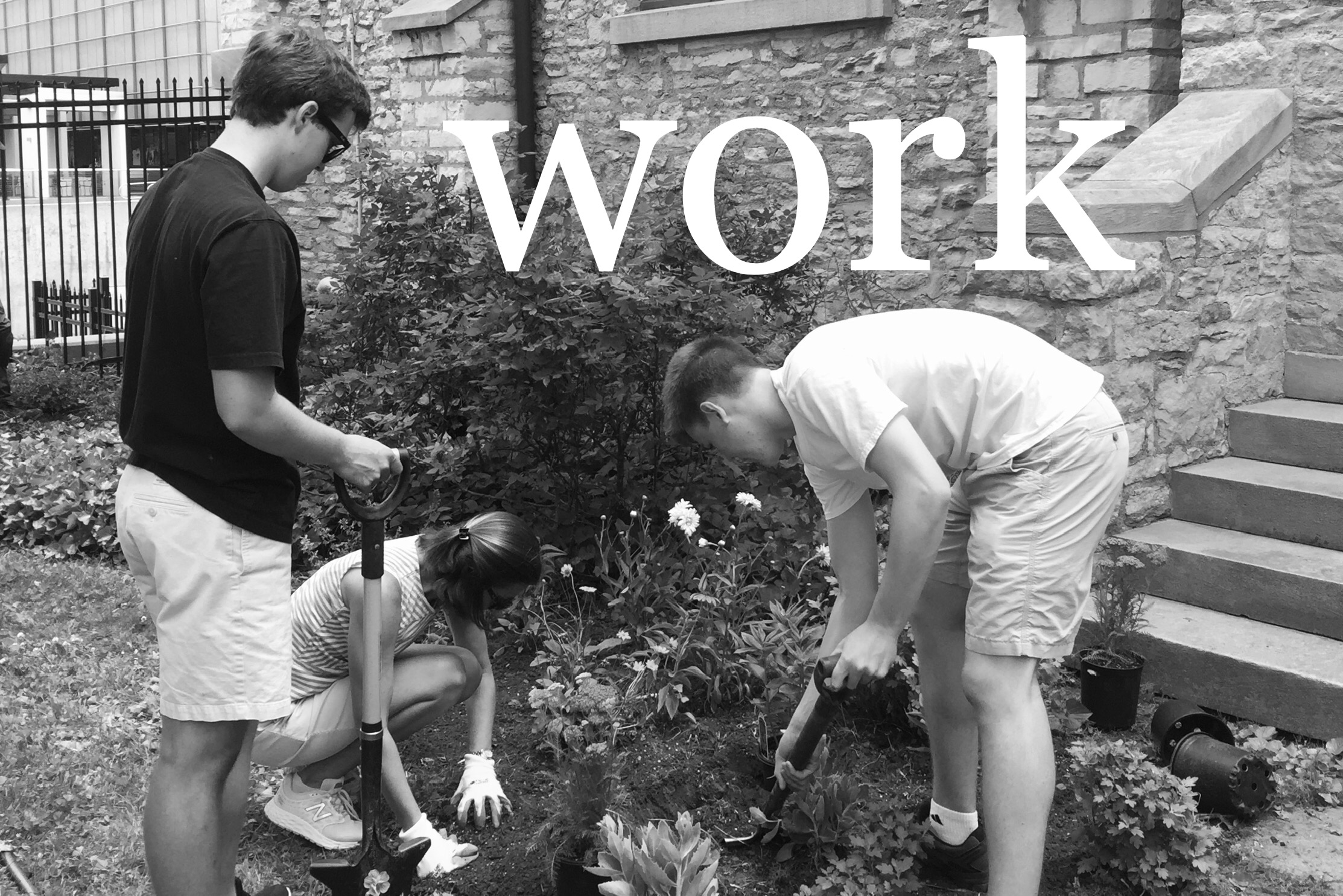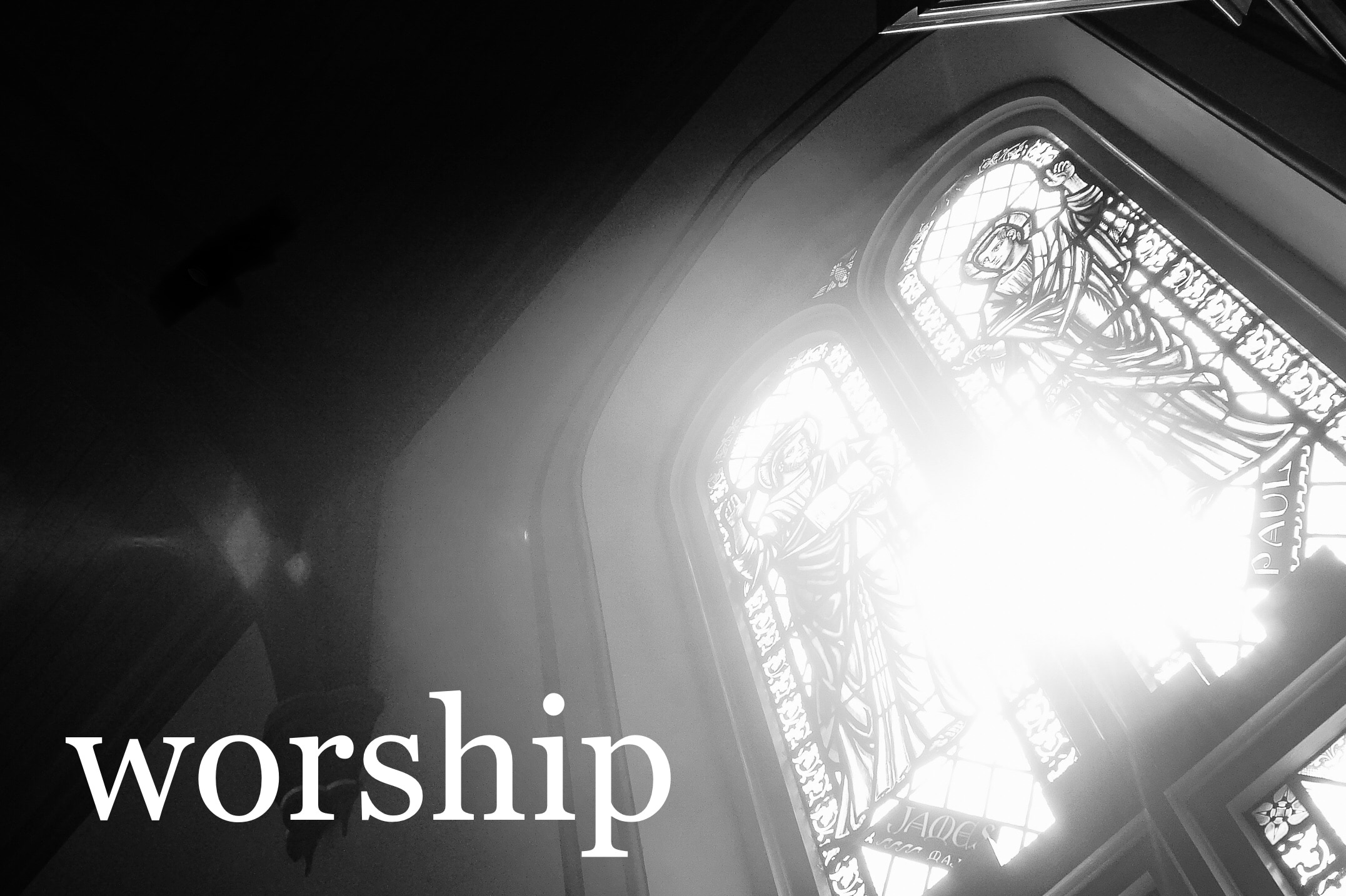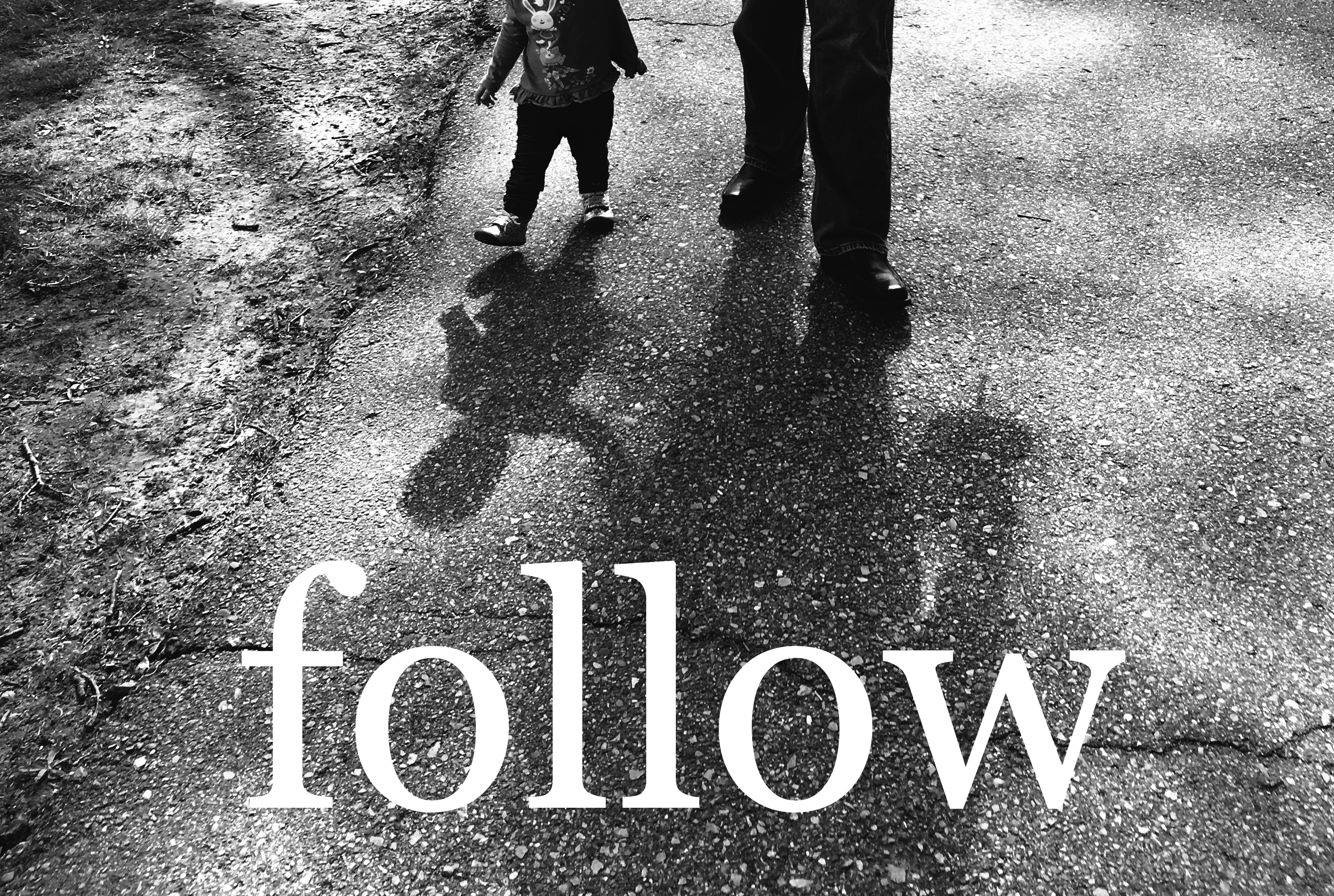The Ancient Paths: Pray
This past Sunday we had a lovely intersection between the sermon on our fourth “bounden duty,” as members of Mariners’ Church, to “pray[…] for the spread of [God’s] kingdom,” and the Church’s yearly calendar. We are currently in the nine days between Ascension Day (remembering Jesus’ ascent into heaven, see Acts 1) and the coming of the Holy Ghost to fill the Church at Pentecost (see Acts 2). The first Christians spent this interim time in prayer for the coming of the Holy Ghost, echoed in the words of the Collect for the day, “send to us thine Holy Ghost, to comfort us.”
Prayer is a tricky subject for most of us. It brings up both philosophical questions about things like miracles and divine intervention, and practical difficulties… we often don’t know how to pray or feel like we’re unable to focus in the midst of day-to-day busyness.
If you’ve ever felt like you don’t know how to pray, or like you’re not able to pray, you’re not alone. The original Apostles felt the same way, asking Jesus, “Lord, teach us to pray,” in Luke 11:1. They also failed, at a pivotal hour, in praying with Jesus in the Garden of Gethsemane, a personal failure that I can’t help but wonder if St. Peter had in mind as he wrote the words in his First Epistle that we read on Sunday, “be ye therefore sober, and watch unto prayer.”
Jesus’ answer to the disciples’ question “Lord, teach us to pray.” was to give them what we know as “The Lord’s Prayer.” This prayer that Christ taught us is at the heart of all Christian prayer. It constitutes a climactic moment of prayer in all of the services in our Prayer Book, from the Daily Office to Holy Communion, from weddings to burials. It is also the foundational prayer in our bounden duty to pray “for the spread of the kingdom,” as central petition of the Lord’s Prayer is “thy kingdom come, thy will be done, on earth as it is in heaven.”
What Is Prayer?
The Lord’s Prayer is a beginning, but what about Christian prayer more broadly? What is prayer, anyways? The great early 20th century Anglican priest, Bernard Iddings Bell, in his book The Good News, had this to say about prayer:
What is prayer? It is not, as many people suppose it is, a magical method of incantation whereby one seeks to force God to do for him what he is unable to do for himself. It is not a way whereby we can wrest the will of the Eternal One to obedience to our will. Its center is not us. Prayer is rather a method whereby we seek to give ourselves and our lives, with their duties and their problems, wholly into the hand of God, removing all our strivings from the way of His desire. The center of prayer is God.
The center of prayer is not us, “The center of prayer is God.”
There are three things that we often perceive as being related to prayer, but often misunderstand how they relate to prayer, that shifting from a “me-centered” to a “God-centered” understanding of prayer can help correct: our will, our circumstances (especially our problems), and our feelings.
1. Our Will:
Bernard Iddings Bell said about Christ’s prayer in Gethsemane:
[Christ] had indeed something terrifying to pray about. Before him lay, and he knew it, possible torture, exquisite agony, sure death. He knelt there in the place apart and said, ‘O Father, if it be possible, let this cup pass from Me. Nevertheless, Thy will, not My human one, be done.’ Yes, prayer is a way we seek to give our wills to God, not a way to seek to bend his will to ours.
When we pray, it is not only for God’s kingdom to come, but God’s will to be done, on earth as it is in heaven. Prayer is an act of submitting one’s own will to the will of God. When God, rather than ourselves, is the center of our prayer, we become yielded so his will can be accomplished in our lives.
2. Our Circumstances (especially our problems):
While we are beckoned to bring our problems to God in prayer, as St. Paul encourages us, “Be careful for nothing; but in every thing by prayer and supplication with thanksgiving let your requests be made known unto God,” (Philippians 4:6) this is not all prayer is.
I was once going through a time of great personal adversity, and talking to a spiritual director about it, and how to pray during that time. He gave me some sage wisdom that I’ll never forget: “Don’t focus on how to take your problems to your prayer, but on taking your prayer to your problems.” In other words, he was encouraging me, similar to Bell, for my times of prayer to be more God-centered, rather than me-centered, and as my prayer became more God-centered, a consequence would be that I would be formed in such a way that would help me with my problems: because of God-centered prayer, I’d trust God more, receive more of his grace, and focus more and more on him and his goodness than on me and my problems.
3. Our Feelings:
It is very easy to become fixated on the idea that prayer should result in, or even be fueled by, an overwhelmingly positive feeling. This supposition just sets us up to not pray very regularly. If we are praying as often as is good for us, much of the time we will not feel like it.
C. S. Lewis, in The Screwtape Letters, refers to “the law of undulation.” There are peaks and troughs in our lives and our experiences, including our religious experience. At points, we are close, and feel close to God, at points we might not feel close to God, but nonetheless are close to him, or he is close to us. We often feel positive feelings at the time of a religious conversion or renewal. These are a gift, but they usually don’t last. In The Screwtape Letters, the demon, Screwtape says this:
Sooner or later, God withdraws, if not in fact, at least from their conscious experience, all those supports and incentives. He leaves the creature to stand up on its own legs – to carry out from the will alone duties which have lost all relish. It is during such trough periods, much more than during the peak periods, that it is growing into the sort of creature he wants it to be. Hence the prayers offered in the state of dryness are those which please Him best[…] He wants them to learn to walk and must therefore take away His hand; and if only the will to walk is really there He is pleased even with their stumbles. Do not be deceived, Wormwood. Our cause is never more in danger than when a human, no longer desiring, but still intending, to do [God’s] will, looks round upon a universe from which every trace of Him seems to have vanished, and asks why he has been forsaken, and still obeys.
This is God-centered prayer, prayer that though we might not feel God is near to us, we still obey, we still pray in spite of, in the midst of, the dryness.
Prayer is our way to union with God, and so we pray for the spread of his kingdom, not only in the world, but in our own hearts, that we would live lives under his Lordship. And as our prayers become God-centered, we pray for the spread of his kingdom, not only as a topic of our prayers, but every prayer we pray itself enacts the spread of the kingdom, “on earth as it is in heaven,” as we, the body of Christ on earth, through prayer, grow more and more into “the stature of the fulness” of Christ our Lord, who has ascended into heaven.
Some Suggestions to Pray This Week:
Praying can be difficult. Many of us might not know what to do or how to pray. Even praying at all, in our distracted culture, is a tall order. St. Paul exhorted the Thessalonian Christians to “pray without ceasing.” Praying regularly, let alone unceasingly, seems daunting to us.
And yet it is doable! Modern psychology informs us that the best way to start a new habit is consistency, in time and in place. If there is a new habit we want to establish, the best way is to do it at the same time each day, and in the same place. This is consistent with the Church’s wisdom, that gives us a rhythm of prayer at certain times of day, and commends to us the practice of setting aside consecrated spaces, both churches and in our homes, in which to pray.
If you were to establish a daily practice of prayer, consider the following:
- When would you pray? Select a time of day. Better yet, what is an existing habit that you could “attach” your prayer time to? Do you eat breakfast or dinner consistently already? Could you pray before or after one of those times or at another point in your daily routine?
- Where is a quiet place in your home, free of distraction, that you can set aside as a “chapel”? Perhaps you can keep a BCP, Bible, icon, crucifix, or other objects of devotion in this space, and have it be somewhere you go consistently to pray.
Take some time this week to pray from the Book of Common Prayer. (If you do not have a BCP, see Fr. Jeff or Charlotte at church on Sunday) A short time, done consistently, is better than lengthier times done rarely. Ease into it. Some suggestions for a place to start:
- Commit to praying the Lord’s Prayer three times daily, upon waking, at mid-day, and before going to sleep. You can also take one of these times to pray it slowly and contemplatively, noticing your breath and letting each phrase or even each word soak in.
- Pray the collect for the week, and read the Epistle and Gospel reading each day. With repeated reading, I wonder what you’ll see in the readings that you hadn’t before? (This week’s is on page 179, or can be found online here.)
- Pray the Psalms and read the Scripture readings appointed for Morning or Evening Prayer, found in the Lectionary (list of readings for the days of the year) near the front of the BCP. (Starting on page x. We are currently on pages xxiv and xxv.)
- Pray Family Prayer (there are short and long forms, and also prayers for different circumstances) in the morning or evening, found near the back of the BCP. (pg. 587)
- The best thing to do is pick one of these practices and do it as consistently as you can. If you miss a day, it’s ok, just pick back up where you left off the next day.
Our sermon series The Ancient Paths continues this Sunday, June 9! Join us at either our 8:30 or 11 a.m. service. Our theme will be “Give”. Complimentary parking is available for all services in the Ford Underground Garage. For information on planning your visit to Mariners’ Church, click here. See you soon!

